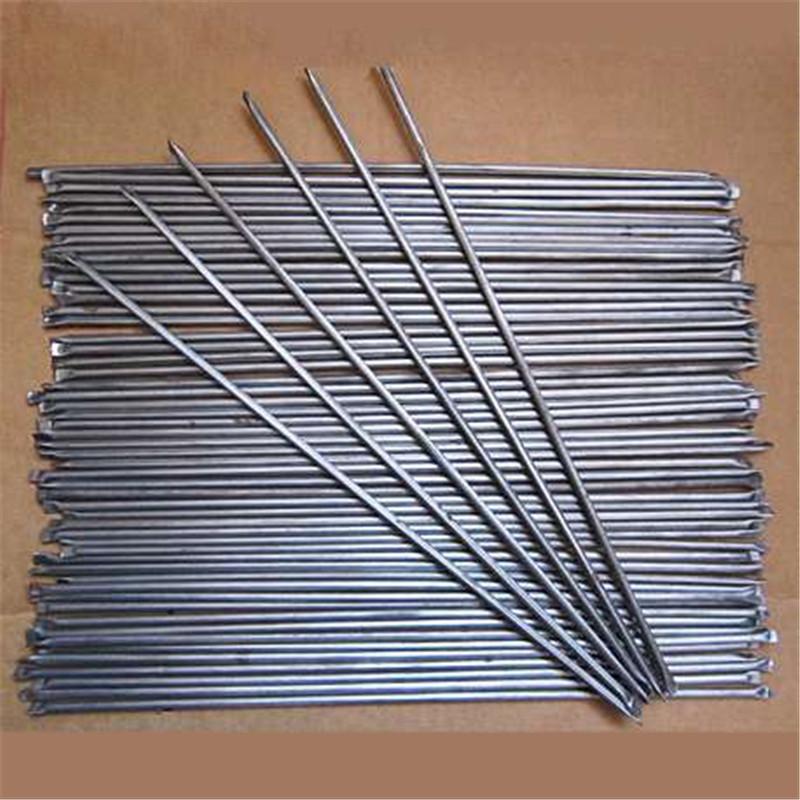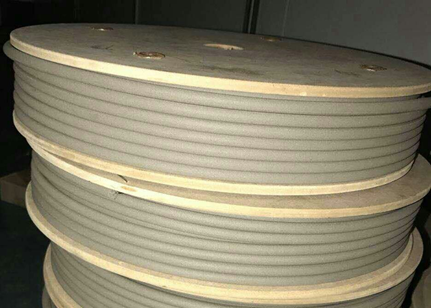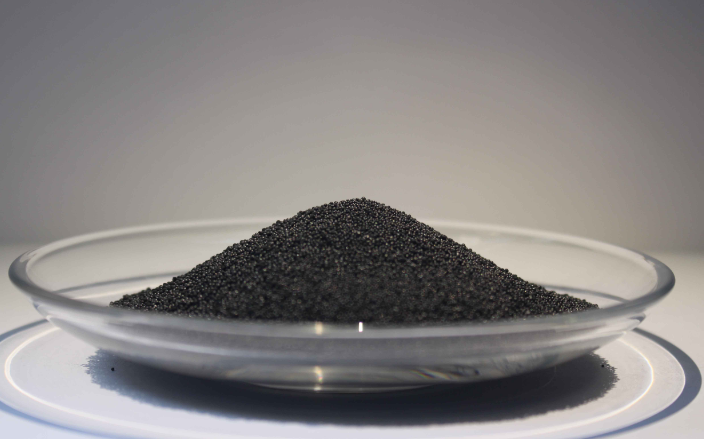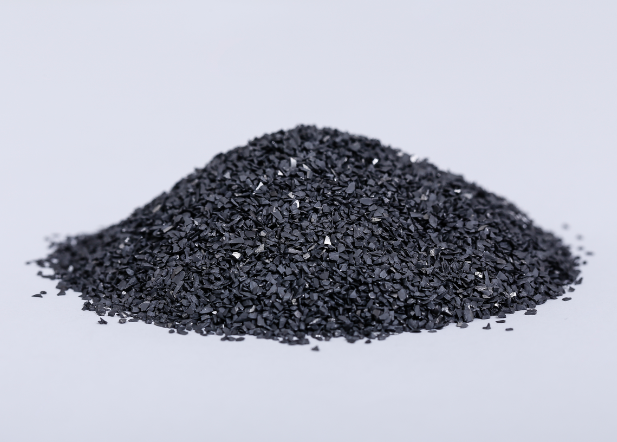1.Welding materials
In
Welding, substances called filler materials or consumables are used. As the
name implies, these substances provide filler or a body of molten materials
that provides a strong bond to be formed between the base metals used. Most
welding processes will also require some form of shielding to protect both the
main components and filler from being oxidized during the process.
The
type of welding materials used during welding depends on the nature of the job
intended. Electrodes draw the necessary energy in order to perform welding
applications. Luoyang Golden Egret Company has any kind of welding materials
include CTC Welding Rod /rope, SCTC welding rod/rope, TC electronic welding rod,
Ni-based welding rod, flux-cored Welding Wires, solid welding wires and etc.
Welding
can be applied in different kinds of industries such as building and
construction, oil and gas, marine, power generation, steel, mine tools,
automobile, transportation and etc.
2. Welding rod
1)Cast tungsten carbide based tubular
rod
The
hard phase of the rod is cast tungsten carbide which leads to higher hardness
and better wear-resistance.
Wear
resistance: the wear resistance is 6-7 times better than others. Tested by ASTM
G65
Mainly
used for Mining machinery, Geological tools, Petroleum drilling tools etc, by
Oxy-Acetylene with weak carburizing flame.
Product
recommendation:
GT1103
(CTC, 60-80 mesh),
GT1103-1(CTC, 20-30 um),
GT1103-2(CTC,
40-60 um)
2)The hard phase of tube rod is carbide
pellets which leads to higher impact resistance and better wear resistance than
CTC cloase rod.
Wear
resistance: the wear resistance is 6-7 times better than others. Tested by ASTM
G65 wear test.
Mainly
used for mining machinery. Geological tools etc; by Oxy-acetylene with weak
carburizing flame.
Product recommendation:
GT2102 (Cemented carbide grit, 30-60mesh)
GT2102-2(Cemented carbide grit, 30-40mesh)
GT2102-3(Cemented carbide grit, 40-60mesh)
3)Tube rod is composited by Cemented carbide
pellets, Spherical CTC and CTC. The layer has higher impact resistance, better
wear resistance and good fluidity than other rods.
Wear resistance: the wear resistance is 6-7
times better than others. Tested by ASTM G65.
Mainly used for oil method drill bits, such as
Tri-cone bit, Steel tooth bit, PDC bit, etc. By Oxy-Acetylene with weak
carburizing flame.
Product recommendation:
GT3302 (carbide pellets, 20-40mesh)
GT3302-1(carbide pellets, 14-40um)
4)The hard phase of the rod is monocrystal WC,
the welding layer has a higher wear resistance and better impact resistance.
The wear resistance is 6-7 times better than
others, tested by ASTM G65 method.
Mainly used for the repair and strength for oil
drills bits, such as PDC bit diameter holding by Oxy-Acetylene with weak
carburizing flame.
Product recommendation:
GT4104 (Monocrystal WC, 80-200mesh)
3. Welding Rope
Made
form mixture of CTC and self-fluxing nickel alloy covering on nickel wire. The
CTC is in spherical or irregular with good wear resistance; the nickel alloy is
in spherical or nearly spherical shape with good wettability and erosion
resistance and better corrosion resistance than tubular rod.
Recommend
to use Petroleum drilling tools, Concrete mixing blade, Mud pump, Coal sluice,
Coal drill pipe, Tunnel drilling machinery etc.
By
Oxy-Acetylene Welding with weak carburizing flame.
Product
recommendation:
GS110450N
(CTC, 4mm, HRC 47-55)
GS110550N
(CTC, 5mm, HRC 47-55)
GS110650N
(CTC, 6mm, HRC 47-55)
4. Welding Bar
The
rod is sintered by CTC and Ni-based powders. The CTC(Cast Tungsten Carbide) is
in irregular or spherical shape with better wear resistance and the nickel
alloy is in spherical or nearly spherical shape and has good wettability with cast
tungsten carbide. The cladding layer has a higher impact resistance and better
wear resistance.
Its
wear resistance and corrosion resistance is between tube rod and flexible rope.
Mainly
used on the Steel PDC bit, Concrete mixer blade, Mud pump, Miner chute, Miner
drill stem and Mechanical parts of Tunnel rock drill machine etc.
Welded
by Oxy-Acetylene with weak carburizing flame.
Product
recommendation:
GD4025253-3(CTC, SCTC, 4*600/6*600)
GD4030303-3(CTC,
SCTC, 4*600/6*600)
5. Welding wire
Intensified molybdenum titanium vanadium
composite chromium carbide welding wire can improve layer`s bonding strength
and tenacity. This wire can use for multilayer welding which has no peel off,
and it can maintain good wear resistance under certain impact working condition.
Product recommendation:GSQD671Mo-4(1.6mm)
Medium carbon and high chromium wear resistance welding wire has a higher
hardness, stronger wear resistance, and excellent toughness by adding a certain
amount of molybdenum alloys and boride. It has a better impact resistance and
strip resistance than high chromium cast iron type materials
Product recommendation: GSQD621Mo-4(1.6mm)
With
high sphericity & excellent alloy organization, cemented carbide pellet is
mainly used in welding, as an adding material of PTA Powder , tubular welding
rod, to improve the wear resistance of the workpieces greatly.
Product recommendation: GQ06
Cemented
carbide grit with different percent of cobalt has good abrasive resistance and
is widely used for making grinding, polishing and cutting tools.
Product
recommendation: GS08A
Weld Materials,Tubular Welding Rod,Welding Electrodes,Stainless Steel Welding Rod Luoyang Golden Egret Geotools Co., Ltd , https://www.xtccarbide.com
Residue hydrotreating catalysts and process technologies are complete sets of technologies developed by Sinopec Research Institute after 20 years of development with independent intellectual property rights. This technology won the first prize of National Science and Technology Progress Award in 2002 and successively applied in Qilu Petrochemical, Dalian West Pacific, Maoming Petrochemical, and Hainan Refining and Chemical Industry, providing strong technical support for rational utilization and deep processing of inferior or heavy crude oil. Maoming Petrochemical The 2 million-ton/year resid hydrotreating unit is designed and constructed based on this technology, which breaks the monopoly of resid hydropower technology by foreign large companies. At present, more than 130 patents have been filed around this technology and have become the fist technology of Futusian Academy.
While serving domestic enterprises, the Fudan Institute joined hands with catalyst producers to actively expand the international market. Since 2002, they have conducted technical discussions with Indonesian National Petroleum Corporation on residue hydrogenation technology and have conducted two more than 10,000 hours of catalyst life tests. Together with the test results and successful experience gained in domestic industrial installations, they put forward a complete technical solution that has been approved by the Indonesian side, established as a qualified supplier, and invited to participate in the residue hydrogenation catalyst organized by the Indonesian National Petroleum Corporation. .
At the tender meeting, the Sinopec bidding team, which consists of the Fushun Research Institute, the Catalyst Branch, and Sinopec International Division, competed with the large foreign companies such as Chevron and Albemarle. After many rounds of hard negotiations and unremitting efforts, Sinopec won the bid with rigorous bidding plans, reasonable prices, and rigorous and pragmatic style, fully demonstrating that China's residual oil hydrogenation technology and catalysts are at the same level as international petrochemical companies. Competing strength.




China's first large-scale export of hydrogenation catalysts
Recently, at the bidding meeting for residue hydrotreating catalysts organized by the Indonesian National Petroleum Corporation, the China Petrochemical Tendering Group won the bid and won orders for nearly 500 tons of residue hydrogenation catalyst, achieving the first large-scale hydrogenation technology and catalyst in China. Exports indicate that China's residual oil hydrogenation technology and catalyst have reached the international advanced level.